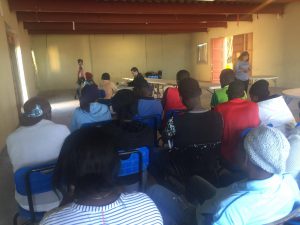U.S. Immigration and Customs Enforcement (ICE) has once again changed their ruling regarding the more than 5,000 Haitian nationals awaiting a Humanitarian Visa or political asylum in the United States.
With overpopulation at the California and Arizona detention centers reaching 41,000 people, U.S. officials have had to reverse the plan that had led to the deportation of over 200 men, women, and children who had fled from economic difficulties in Haiti and the devastation caused by the 2010 earthquake.
“We had already seen this coming, and insisted to the Federal Government that jailing these displaced Haitians was not the solution; there simply aren’t enough cells in the country to house these people, and Haiti is also in no condition to receive their returned countrymen,” said Alliance San Diego Human Rights Director Christian Ramirez. “It’s a very vulnerable situation, which is now even more complicated, and we are extremely worried about what will happen under the next Administration.”
The impact of this change in policy can already be felt in many San Diego shelters and faith organizations, who have seen a significant increase in the number of Haitians who recently arrived through Mexico and are seeking a place to sleep and eat while they await their next hearing before immigration court.
“We have seen some changes; they have come in larger numbers in recent days. Unfortunately, we have had to tell them we do not have enough space, so we have referred them to certain Catholic charities who are aiding in this situation right now. We don’t know what’s going to happen now, because this just started happening again,” stated Jean Elise Durandisse, a pastor at a Haitian church in San Diego.
Immigration officials calculate that about 40,000 more people
from Haiti and elsewhere are on their way to Baja California, across the border from San Diego, to request shelter.
People like Fanfan Joseph, who waits in Baja for a court date on January 7, 2017, hopes to get the good news that he will be allowed to stay so he can provide a better quality of life for his six children back in Haiti.
“The first job I can get either in Mexico or the United States will be to provide for my family, because they are suffering greatly right now,” said Joseph.
As of today, the thousands of people stuck in San Diego and other border-region detention centers, those waiting in Mexico, and even those walking free on U.S. soil face an uncertain future.
For now, their ankle monitor serves as a reminder of their next immigration court appearance, and, in their own words, their fate is in the hands of whatever announcement comes next from Homeland Security.
